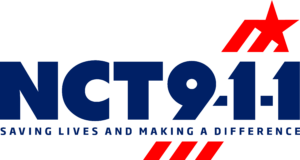In times of crisis, knowing where to turn for help can make all the difference. While many are familiar with 9-1-1 as the emergency number for immediate assistance, fewer are aware of the new 9-8-8 hotline dedicated to mental health crises. This May, during Mental Health Awareness Month, let’s explore the differences between these two critical services and how they can support those in need.
9-1-1: Emergency Assistance for Immediate Response
9-1-1 is the familiar emergency number that connects callers with Emergency Medical Services (EMS), fire, and law enforcement as needed. It is accessible via call or text (in some areas of the United States, available across the NCT9-1-1 service area), providing a vital lifeline in urgent situations. When you contact 9-1-1, you reach a trained 9-1-1 telecommunicator and public safety dispatch workers, not licensed mental health professionals. These professionals answer the phone, listen to the caller, understand how their problem is affecting them, provide support, and share resources if needed.
In situations involving an individual with a mental health condition or someone experiencing a mental health crisis, a trained officer from a crisis intervention team, who has received basic training in handling mental health crises, may be accessible through the 9-1-1 call center.
9-8-8: Support for Mental Health Crises
9-8-8 is the new 24/7 hotline dedicated to mental health crises. It offers call, text, and chat access to trained crisis counselors who can help people experiencing suicidal, substance use, and/or mental health crises, or any other kind of emotional distress. Unlike 9-1-1, which focuses on immediate emergencies, 9-8-8 provides a compassionate and understanding ear for those facing mental health challenges.
Both 9-1-1 and 9-8-8 are free and available 24 hours a day, 7 days a week, 365 days a year. If you are experiencing an emergency, do not hesitate to reach out for help. By spreading awareness for Mental Health Awareness Month, we can ensure that more people know about these vital resources and can access the support they need in times of crisis.

